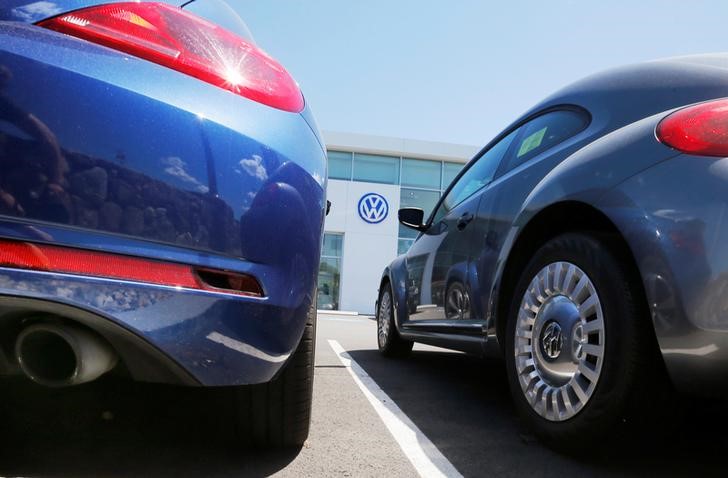Volkswagen's $1.4 Billion Tax Evasion Allegation in India - Reuters
According to reports, German automaker Volkswagen's subsidiary in India has been served a notification by Indian authorities alleging it avoided import duties amounting to approximately $1.4 billion. The claim focuses on the declaration of imported car parts for brands like Audi, VW, and Skoda as separate components to apply a lower customs duty rate instead of the full tax rate applicable for complete vehicles.
The notification dated September 30 alleges that Skoda Auto Volkswagen India, Volkswagen's Indian unit, imported nearly complete vehicles that should have been subject to a 30-35% import duty under completely knocked down (CKD) rules. However, it is asserted that the company misrepresented this import, paying only a 5-15% tax. The Indian government's investigation indicates that the company utilized different shipping bills to evade higher taxes on vehicles, which include the Skoda Superb and Kodiaq, Audi A4 and Q5, as well as VW's Tiguan SUV models.
According to a 95-page notice from the Customs Commissioner's Office in Maharashtra, Volkswagen should have paid approximately $2.35 billion in import duties and related charges since 2012 but has only paid $981 million. The notification, reviewed by Reuters but not publicly disclosed, describes the logistics arrangement as an artificial scheme to evade tax payments.
Following the news, Volkswagen shares experienced a drop of up to 2.13% on the Frankfurt stock exchange. The company has been requested to make a statement regarding the alleged evasion and to respond to the notification within 30 days. This situation could lead to penalties and interest charges in addition to the unpaid taxes. Overall, if found guilty, Volkswagen could be required to pay up to $2.8 billion, including penalties equivalent to 100% of the evaded amount.
Skoda Auto Volkswagen India issued a statement claiming compliance with all laws and regulations and vowed to cooperate fully with the authorities. The tax notification comes at a time when Volkswagen plans a $1.8 billion investment for the production of electric vehicles (EVs) and hybrid cars in Maharashtra. Despite these investment plans and the positive outlook expressed by the group’s chief financial officer, Volkswagen remains a small player in the Indian automotive market.
The notification also noted that in 2022, Indian investigators searched Volkswagen's facilities, seized documents, and questioned the company's India managing director, Piyush Arora, who could not provide an explanation for the shipping practices under scrutiny.
The notification from Indian officials revealed a modus operandi where Volkswagen India used internal software to place bulk orders for vehicles, which were then broken down into major components or parts. These parts were shipped in different containers over several days and billed separately, allegedly to reduce the payable taxes. The company’s defense that this method was used for operational efficiency was dismissed in the notification, which emphasized that logistics is an insignificant part of the process and that the company is not a logistics firm.


